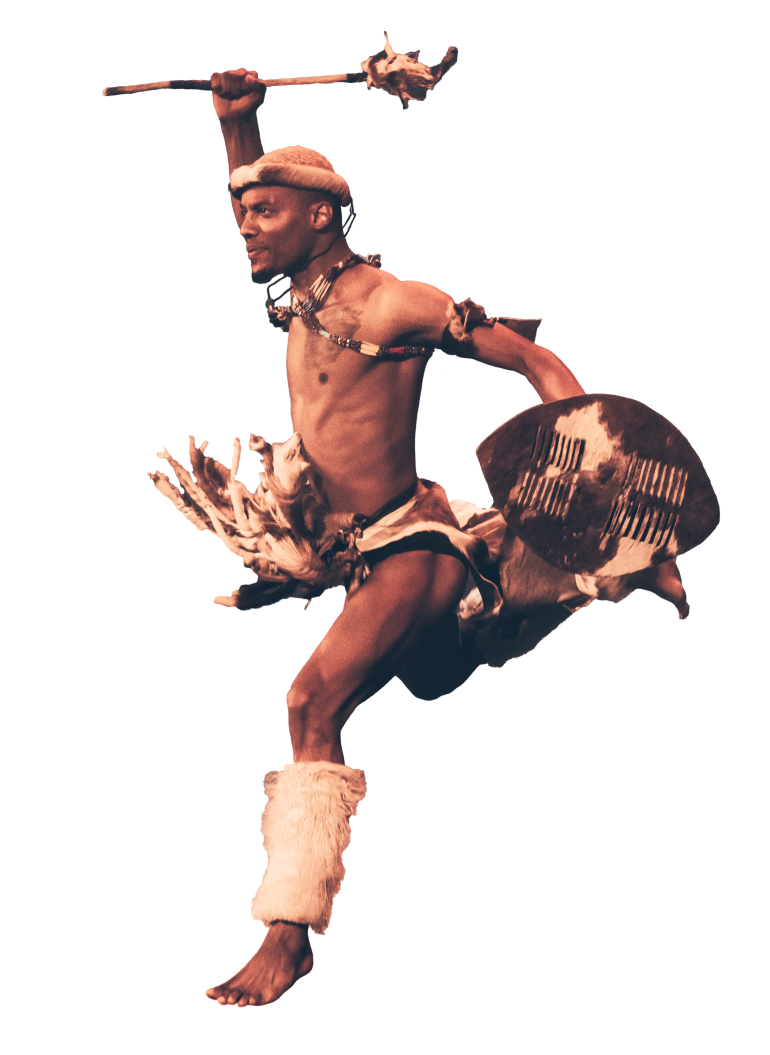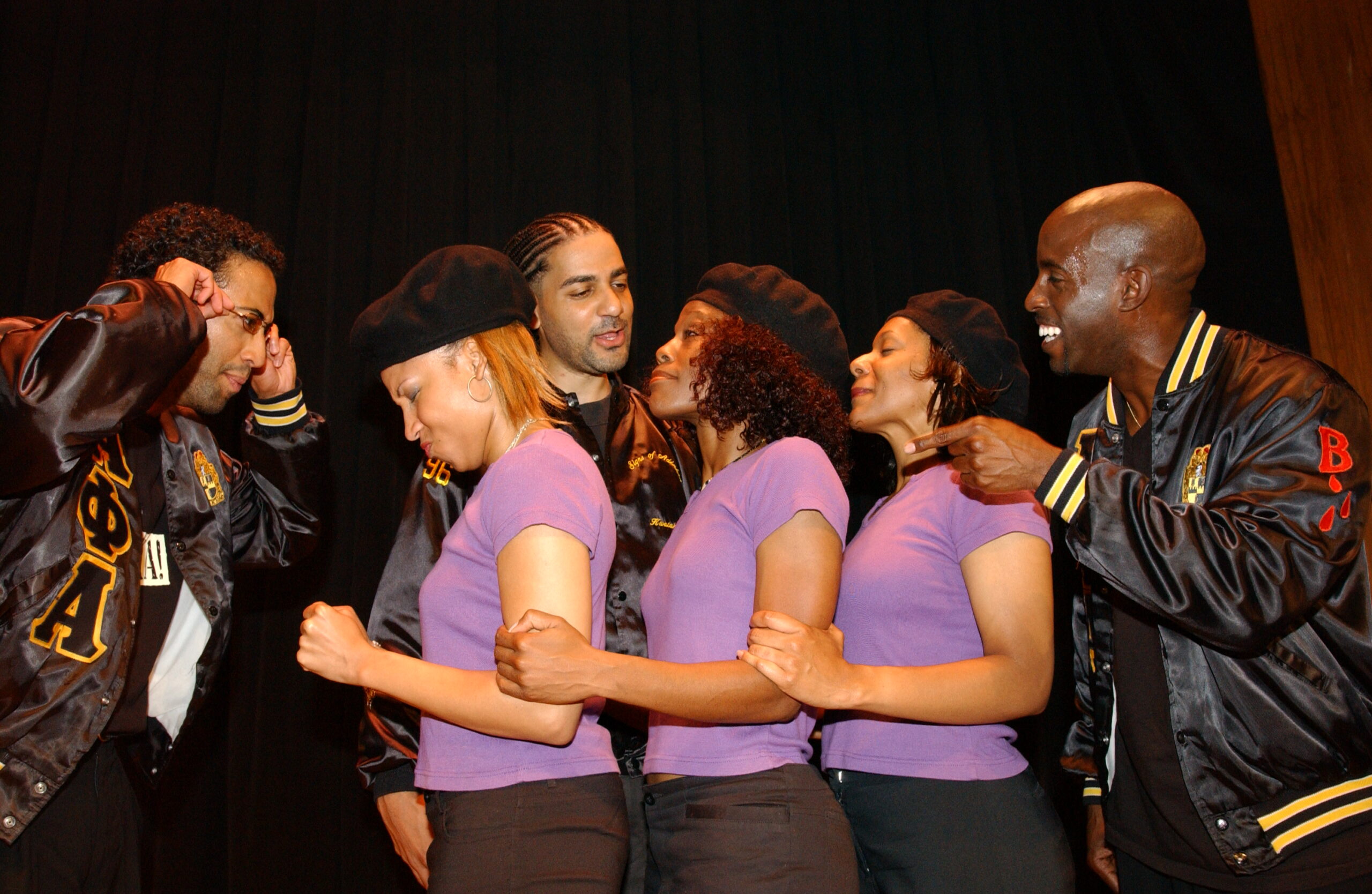On October 19 – 21, 2001, Step Afrika! hosted the Celebration Weekend and Youth Step Conference: A Homecoming for Culture and Community in Washington, DC. The opening evening was considered a celebration as well as a performance, as Step Afrika! affirms the foundation of step with a program that highlights both Southern Africa and African American fraternities and sororities where the artform was born.
VIEW THE 2001 CONFERENCE FLIER HERE
VIEW THE FULL 2001 CONFERENCE PROGRAM HERE
*Stepping’s Great Stides into the Mainstream
Written by Lisa TRAIGER of the Washington Post, published October 22, 2001
“Step Afrika! may well be among the best-kept secrets on the local dance circuit. The seven-year-old troupe appears regularly on a variety of showcase programs throughout the area and tours internationally, but it didn’t make its full-evening debut here until this past weekend. What took so long? The nine performers and three guest artists filled the Dance Place stage with high-energy percussive stepping from the African American fraternity and sorority tradition as well as South African Zulu and gumboot styles. And the audience couldn’t get enough of the lightning-fast stomps, claps, slaps, kicks and rhymes; the performers, equally adept at complex stepping, dancing and, most vital, acting, drove the crowd to whoops and hollers.
…
Guest artist Sduduzo Ka Mbili, originally from Durban, South Africa, and of late at the helm of his own company in New York, contributed a robust, limber solo, “Juxtapower,” that emoted themes of bondage and freedom. Kirsten Smith’s “Can U Dance?” incorporated clever poetry by Darrius Gourdine matched by equally witty choreography that referenced dance styles from the ballet to the bump to breaking and contact improvisation. The powerfully spiritual “Wade,” with its reenactment of a baptism and compelling use of gumboot, tap and church-inspired dance, and “Sebenza” (“Work”), a South African gumboot dance traditionally performed by miners to pass the time in the harsh work environment, demonstrated the troupe’s versatility.
…
Williams and his colleagues at Step Afrika! lead *stepping into the realm of other percussive forms of movement and share it charmingly.”
VIEW THE FULL 2001 ARTICLE HERE
The Company has previously attended the First National Conference on Stepping, featuring 21 North American artists, in April of 2001:
STEPPING FOCUS OF CONFERENCE
Written by Chris Gale for the Collegiate Times, published on Tuesday, April 10, 2001
“Scholars and artists from the United States and Mexico gathered at Virginia Tech Friday and Saturday for the First National Conference on Stepping.
Kirsten Smith, assistant director of the dance group Step Afrika!, said stepping is a form of group dance that originated from African-American Greek letter organizations.
“You usually have some sort of vocals, singing, chants or vocal cadences,” Smith said. “You usually see pene moving in unison; you see wah energy and you use all of your body” Smith also said stepping is very percussive. “The hands and the feet ate the instruments as far as the percussion goes, the feet. are the bass and hands are the treble,” Smith said. “I call stepping explosive dance — that’s where you just use ‘all of your energy and there’s no pacing it. I don’t think there is anything quite like that.”
…
“Stepping is really blossoming and growing,” Fine said. “It is being practiced by high schools, youth groups, churches and Latino, Asian, and multicultural fraternities and sororities.”
…
Lawrence Ross, author of The Divine Nine: The History of African-American Fraternities. and
Sororities, said he hopes more conferences such as the one held at Tech will take place in the future to ensure the role of stepping in African-American history.”
VIEW THE FULL 2001 ARTICLE HERE

Be A Part of Our History
Founded in 1994 by C. Brian Williams, Step Afrika! is the first professional company dedicated to the tradition of stepping. Under Mr. Williams’ leadership, stepping has evolved into one of America’s cultural exports, touring more than 60 countries across the globe. To share your Step Afrika! story, visit stepafrika.org/about/. Step Afrika!'s 30th Anniversary Timeline is made possible by the generous funding of Bloomberg Philanthropies, with additional support from the Mellon Foundation and the DC Commission on the Arts and Humanities.
ATTEND A PERFORMANCE
Get TicketsSUPPORT OUR PROGRAMS
Donate NowSTEP AFRIKA! EDUCATION
Learn MoreLEARN ABOUT STEP AFRIKA!
Learn More

 Back to Timeline
Back to Timeline
 Previous Moment
Previous Moment